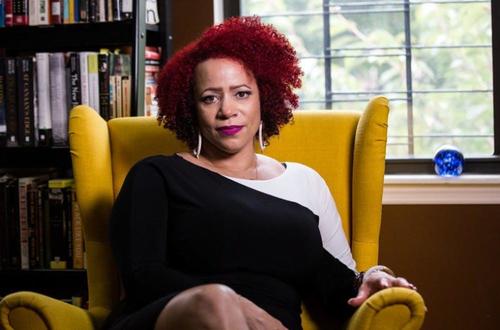Hannah-Jones: "All Journalism Is Activism"
We have been discussing the academic saga over the offer of an academic chair by the University of North Carolina to controversial New York Times Magazine reporter Nikole Hannah-Jones. UNC rescinded the offer but then re-extended the offer without tenure. Hannah-Jones accepted but then changed her mind and demanded tenure. UNC then gave her tenure and she changed her mind to took a chair at Howard University. The opposition to Hannah-Jones was based on the historical errors in her 1619 Project and criticism over biased journalism. Now Hannah-Jones is removing any doubt about her view of journalism. She has declared that “all journalism is activism.”
Hannah-Jones told CBS News that journalists now have set aside notions of neutrality. She noted:
“When you look at the model of The Washington Post, right? ‘Democracy dies in darkness,’ that’s not a neutral position. But our methods of reporting have to be objective. We have to try to be fair and accurate. And I don’t know how you can be fair and accurate if you pretend publicly that you have no feelings about something that you clearly do.”
Reporters are now claiming greater and greater license to frame news to illustrate the truth as they see it. They nod to the need for fairness but then note that they have to tell the truth about society and politics as they see it. They then seek to frame rather than report the news. Hannah-Jones is a great example of how this new journalism quickly becomes raw advocacy.
We have have been discussing how writers, editors, commentators, and academics have embraced rising calls for censorship and speech controls, including President-elect Joe Biden and his key advisers. Even journalists are leading attacks on free speech and the free press. Bias is now treated as something that is natural and motivating. Recently, Lauren Wolfe, the recently fired freelance editor for the New York Times, has not only gone public to defend her pro-Biden tweet but published a piece titled “I’m a Biased Journalist and I’m Okay With That.”
This movement includes academics rejecting the very concept of objectivity in journalism in favor of open advocacy. Columbia Journalism Dean and New Yorker writer Steve Coll has denounced how the First Amendment right to freedom of speech was being “weaponized” to protect disinformation. In an interview with The Stanford Daily, Stanford journalism professor, Ted Glasser, insisted that journalism needed to “free itself from this notion of objectivity to develop a sense of social justice.” He rejected the notion that the journalism is based on objectivity and said that he views “journalists as activists because journalism at its best — and indeed history at its best — is all about morality.” Thus, “Journalists need to be overt and candid advocates for social justice, and it’s hard to do that under the constraints of objectivity.”
For those of us who have worked for decades as columnists and in the media, the growing intolerance for dissenting views is stifling and alarming. Hannah-Jones has been a leading voice in attacking those with opposing views. A year ago, the New York Times denounced its own publishing of an editorial of Sen. Tom Cotton (R., Ark.) calling for the use of the troops to restore order in Washington after days of rioting around the White House. It was one of the one of the lowest points in the history of modern American journalism. While Congress would “call in the troops” six months later to quell the rioting at the Capitol on January 6th, New York Times reporters and columnists called the column historically inaccurate and politically inciteful. Reporters insisted that Cotton was even endangering them by suggesting the use of troops and insisted that the newspaper cannot feature people who advocate political violence. (One year later, the New York Times published a column by an academic who has previously declared that there is nothing wrong with murdering conservatives and Republicans).
It is thus no surprise that Hannah-Jones will now teach the same biased approach journalism to students at Howard University. What is saddening is the silence of most journalism professors as they watch their profession just become a new form of advocacy. Few want to risk the professional attacks in opposing figures like Hannah-Jones. However, this movement is killing their profession. Polls show trust in the media at an all-time low with less than 20 percent of citizens trusting television or print media. Yet, reporters and academics continue to destroy the core principles that sustain journalism and ultimately the role of a free press in our society.
https://ift.tt/3kF3k4s
from ZeroHedge News https://ift.tt/3kF3k4s
via IFTTT


0 comments
Post a Comment